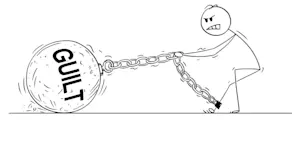What Makes This Word Tick
"Passel" is a delightful term that hints at abundance without getting too specific. It's often used when talking about a large, indeterminate group of things or people, suggesting a collection more than a count. It's the kind of word that adds color to a sentence, making ordinary numbers and lists feel more like a charming crowd or a hefty handful.
If Passel Were a Person…
If passel were a person, it might be your jolly uncle who brings a dozen different dishes to the family potluck without ever confirming how many guests will show up. This person loves plenty, believes in abundance, and has a generous spirit. Like a good storyteller, they delight in the multitude and the more, the merrier.
How This Word Has Changed Over Time
"Passel" has traveled from being a more formal word to a colloquial favorite. Initially derived from the longer, more precise "parcel," it became "passel" over time—dropping its specificity for charming vagueness. It stands as a testament to language's quirky evolution, showing how usage reflects changes in social attitudes toward precision and flourish.
Old Sayings and Proverbs That Use Passel
While the word "passel" itself isn't anchored in old proverbs, it fits naturally into the spirit of folksy expressions that celebrate surplus. Picture a saying like, "A passel of friends makes for rich company," which isn't real per se but would fit right alongside age-old maxims about abundance and prosperity.
Surprising Facts About Passel
The charm of "passel" lies in its informal roots—it’s a linguistic contraction, a remnant of everyday brevity. Interestingly, it is still quite regionally distinctive, more likely to crop up in the American South, conveying a sense of down-home storytelling and familial gathering places.
Out and About With This Word
Next time you're in a grocery store checkout line with an overflowing cart, you might have a passel of groceries! Or when your grandkids come over and fill your living room with noise and laughter, you've got yourself a passel of kids treating your house like the carnival's main attraction.
Pop Culture Moments Where Passel Was Used
"Passel" creeps into pop culture in charming places—imagine a Western film where the outlaw gang is described as "a passel of troublemakers." Though it may not headline movies or music, its presence often adds flavor and authenticity to scripts looking to capture colloquial richness.
The Word in Literature
In literature, "passel" might not dominate the pages of high-brow novels but finds its nook in regional stories, folklore, or anywhere authors aim to evoke a sense of bustling plurality. It’s a word that paints pictures, inviting readers to imagine scenes with a touch more personality and number.
Moments in History with Passel
Picture the bustling gold rush towns or crowded 1920s jazz bars—these could easily be described as having a passel of people, each distinct era offering gatherings that seemed to spring up overnight, filled with hopefuls and adventurers alike.
This Word Around the World
The charm of "passel" doesn’t easily translate into other languages, but its concept is universal. In Spanish, you might say "un montón," or in French "un tas," both of which capture similar ideas of plentifulness without counting cupfuls.
Where Does It Come From?
"Passel" is a playful adaptation of "parcel," reflecting the evolution from a term of precision to one of comfortable vagueness. The linguistic journey took it from 15th-century parcels of land and goods to the cheerfully non-specific collections it represents today.
How People Misuse This Word
Misuse of "passel" tends to undercut its essence; some might use it to imply exactness, which undermines its purpose. It thrives in ambiguity, suitable for suggesting many without needing to delve into specifics—avoid turning it into a synonym for neatly-packaged.
Words It’s Often Confused With
Parcel: Often used interchangeably, but "parcel" denotes specific packages or areas, whereas "passel" is more casual and vague.
Group: "Group" implies some level of order, while "passel" is joyously unruly and less defined.
Bunch: Both can indicate a collection, but "bunch" usually suggests a little more coherence than a passel.
Additional Synonyms and Antonyms
In the synonym camp, we have "cluster," "trove," or "lot." Antonyms would be words like "few," "handful," or "trickle," all suggesting a more limited quantity compared to our affable "passel."
Want to Try It Out in a Sentence?
"During the holiday dinner, my kitchen was filled with a passel of relatives, each more eager than the last to sample Grandma's famous pie."
















